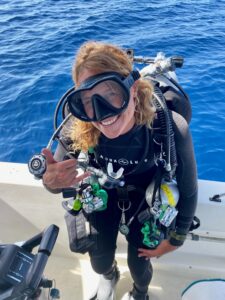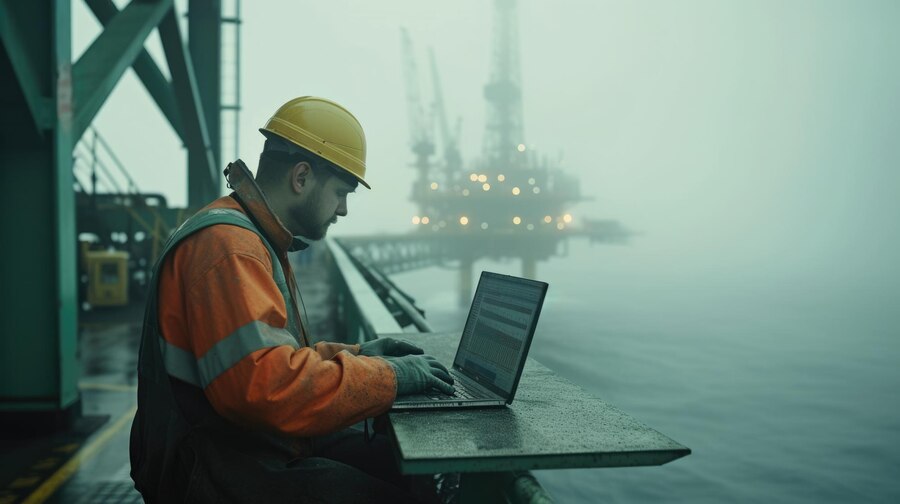The maritime industry is not just about ships and sailors; it’s about intelligent technology steering the future. As we navigate the waves of technological advancements, the complexity of maritime jobs within this sector is reaching unprecedented levels. Let’s explore how maritime technologies are reshaping careers and creating new opportunities.
The Rise of Maritime Technologies
Gone are the days when navigation and cargo handling were purely manual tasks. Today, automation, artificial intelligence, and robotics are taking the helm, transforming mundane tasks into high-tech Maritime Operations Coordinator. These technologies are not just modernizing operations but redefining roles onboard and ashore.
Emerging Trends in Maritime Technologies Complex Jobs
As technology evolves, so does the maritime workplace. Complex job roles are emerging as a direct result of technological integration. For instance, drone operators and AI system managers are becoming as crucial as Boat Captains and engineers. This shift is not only about adopting new technologies but also about enhancing safety and improving efficiency at sea, providing a reassuring sense of confidence in the positive impact of technology.
The maritime industry is currently on the cusp of a technological revolution, forging paths across oceans and into new realms of employment that we only imagined a decade ago. As we embrace a new era of digital transformation, here are some of the most notable job trends shaping the maritime sector:
1. Data-Driven Maritime Roles: In an industry where precision and efficiency are paramount, data analysts and data scientists are becoming essential. These professionals harness vast amounts of data—from cargo logistics to navigation patterns—to optimize routes and improve safety. Their work directly influences decision-making processes and operational efficiencies on a grand scale.
2. Automation Specialists: Automation is transforming maritime operations. Roles such as automation system managers and engineers overseeing automated system installation and maintenance are crucial. These specialists ensure ships operate smoothly with minimal human intervention, focusing on maritime automation’s software and hardware aspects.
3. Environmental Compliance Experts: As international regulations tighten on environmental impacts, the need for compliance officers and environmental engineers has skyrocketed. These roles focus on developing and implementing strategies to minimize ecological footprints, manage waste, and ensure that new technologies adhere to environmental laws and standards.
4. Security and Cybersecurity Roles: With the increased digital operations at sea, cybersecurity has become a critical concern. Maritime cybersecurity specialists work to protect sensitive information and systems from cyber threats, ensuring safe and secure communication and navigation. That includes onboard and shore-based positions that handle everything from routine security protocols to emergency response strategies.
5. Unmanned Vessel Operators and Technicians: The advent of remotely operated and autonomous ships is no longer futuristic—it’s now. These complex roles require unique skills, including remote operation, systems monitoring, and sometimes programming. Technicians and operators in this field are at the forefront, controlling vessels from afar and ensuring that these technological marvels perform their tasks effectively and safely.
6. AI Implementation Specialists: Artificial intelligence is not just about automation; it’s about enhancing cognitive functions within maritime operations. AI specialists develop and deploy algorithms that help predict maintenance needs, optimize fuel consumption, and even assist in navigational decisions. This role blends traditional maritime knowledge with cutting-edge tech expertise.
Each of these emerging roles requires new skills and a readiness to adapt to fast-evolving technological landscapes. For maritime professionals, this shift represents a challenge and a myriad of opportunities to advance and excel in their careers, instilling a sense of hope and motivation for the future.
The Role of Education and Training
Staying afloat in this rapidly changing environment requires continual learning and adaptation. Maritime professionals must now embrace a lifelong learning approach, acquiring certifications in new technologies and systems. Institutions and training centers increasingly offer specialized courses in marine technology, ensuring that today’s naval workforce is well-equipped for tomorrow’s challenges


Navigating Your Career Path
Preparing for a career in maritime technologies involves more than understanding the sea; it’s about mastering the tech that drives it. As the maritime sector evolves, navigating your career path through its complex job landscape can seem daunting. However, you can turn these challenges into significant career milestones with the right tools and a strategic approach. That’s where “UnderWaterPro” steps in—your compass in the vast ocean of maritime and underwater opportunities.


UnderWaterPro: Your Career Compass
At “UnderWaterPro,” we are more than just a job platform; we are your career partner in the underwater and maritime industries. With over a decade of experience in diving and HR management, we understand the unique nuances of these sectors. Our platform is designed to simplify the job search and recruitment process, providing a seamless connection between talented professionals and leading employers.
What We Offer
- A User-Friendly Interface: Easily navigate job listings and recruitment opportunities with our intuitive platform.
- Global Opportunities: Explore a world of opportunities in various dynamic environments, whether it’s scuba diving, commercial diving, or maritime operations.
- Strategic Career Advancement: With resources and tips tailored to maritime technologies and complex job roles, we help you prepare for and adapt to the industry’s future.
FAQs (Frequently Asked Questions)
What qualifications do I need to work in advanced maritime technologies?
A background in maritime operations complemented by training in specific technologies, such as automation or AI, is ideal.
How can I transition from traditional maritime roles to technology-focused positions?
Focus on gaining certifications and experience in emerging technologies and apply for roles that leverage these skills.
What are the biggest challenges facing maritime professionals today?
I am keeping up with rapid technological changes and integrating these technologies into existing maritime infrastructures.
Where can I find resources for ongoing learning and development in maritime technologies?
Many maritime academies and technical schools offer up-to-date courses on naval technologies.
How can “UnderWaterPro” help me find complex jobs in the maritime industry?
“UnderWaterPro” connects you with leading-edge maritime and underwater job opportunities, helping you navigate your career toward these complex roles.
Conclusion
As we’ve explored, integrating advanced technologies in the maritime sector is changing the nature of jobs and expanding the horizon of opportunities. By embracing these changes and preparing adequately, maritime professionals can lead the wave of innovation and safety at sea.


